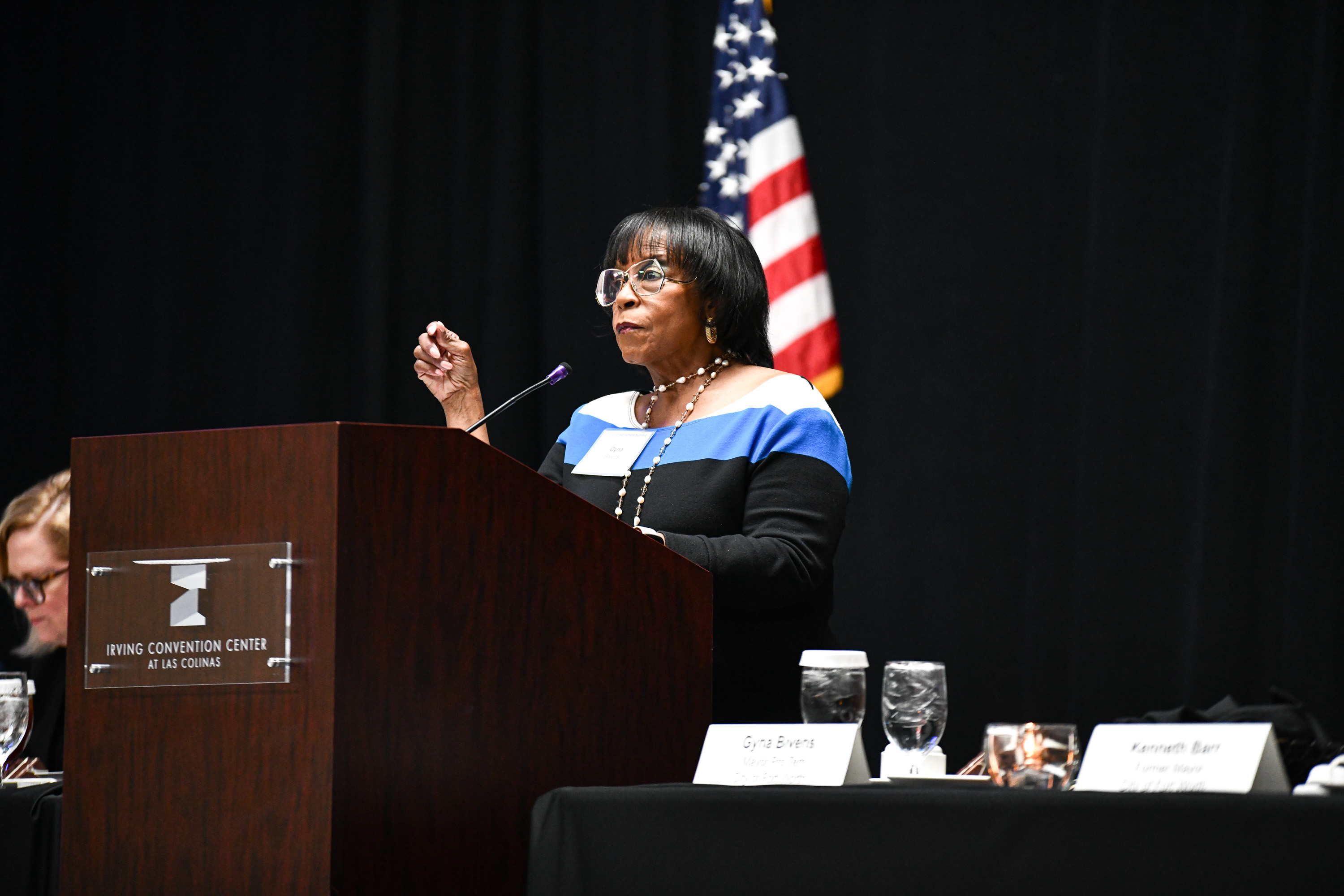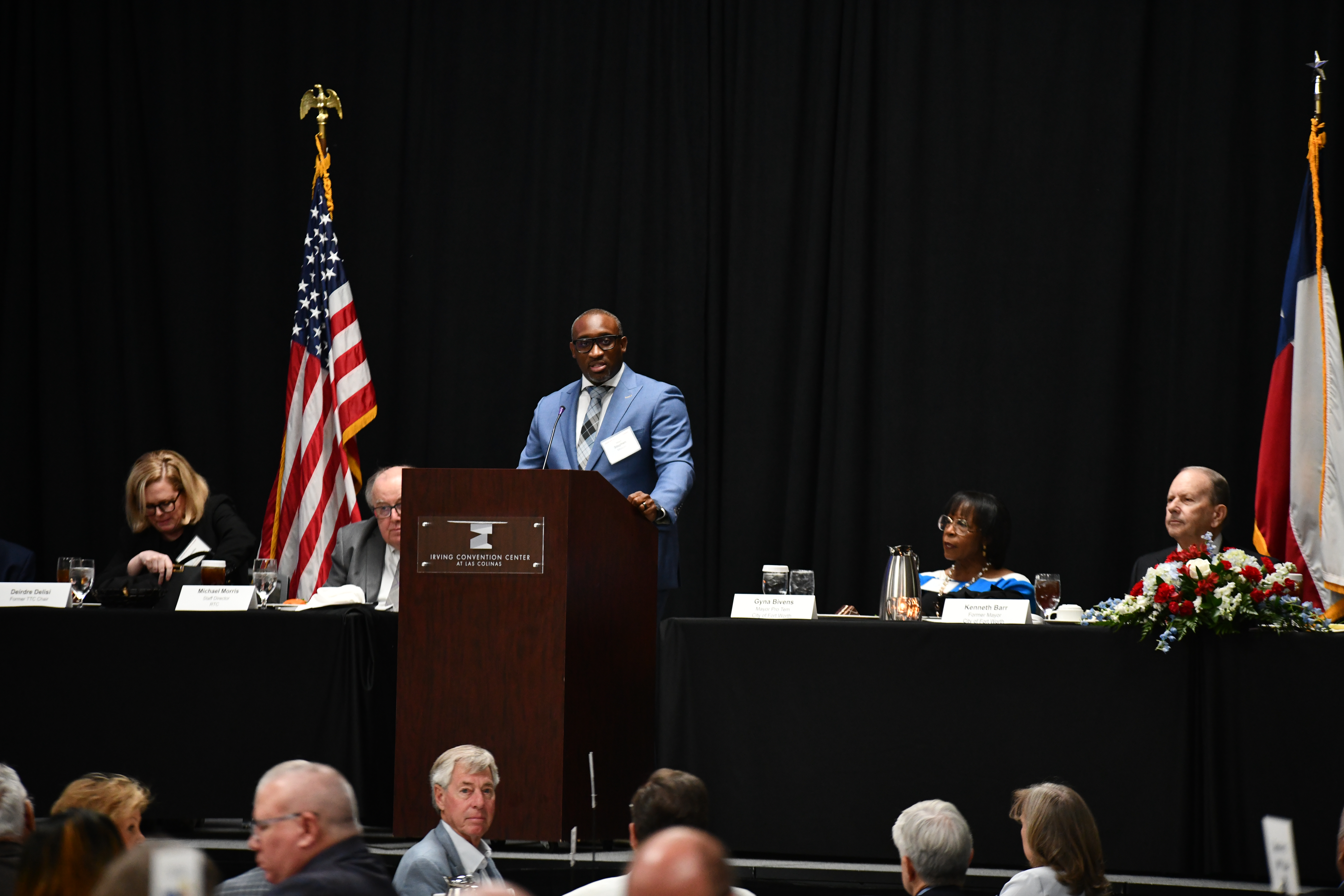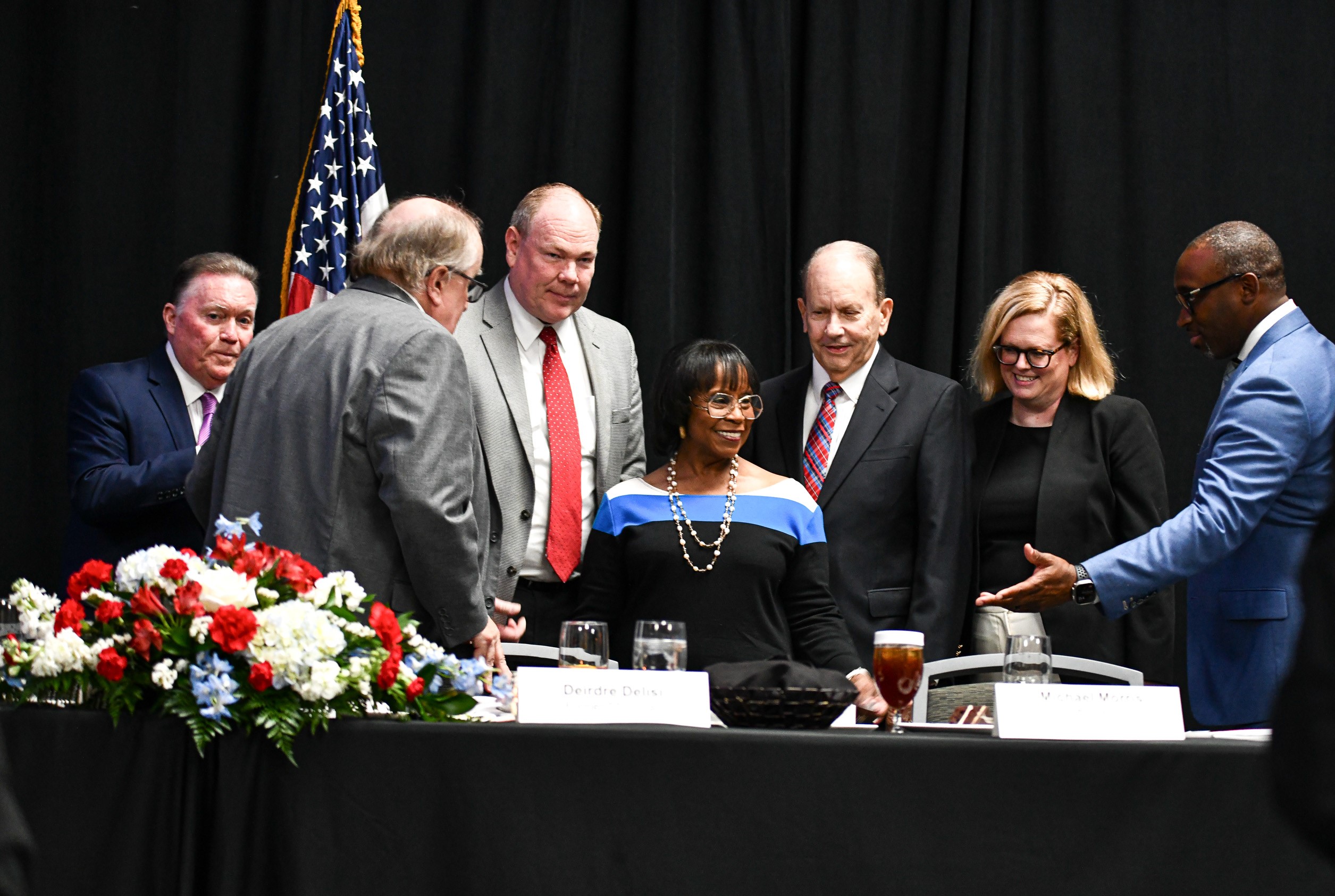MPO's 50th Anniversary
NCTCOG and our Regional Transportation Council have served as the federally designated Metropolitan Planning Organization, for the Dallas-Fort Worth North Texas region since 1974. Much has changed in the over 50 years since that day in April 1974. The region has added roadways, transit and bicycle-pedestrian lanes to the facilities that existed 50 years ago to support the addition of 5 million new residents. Throughout 2024, we are celebrating 50 years as the MPO for Dallas-Fort Worth. The success achieved is possible by strong partnerships developed over the years across both the public and private sectors.
On August 8, 2024, we celebrated 50 years of transportation planning accomplishments with a luncheon at the Irving Convention Center, held in conjunction with the Infrastructure Summit 2024. The program brought together representatives from the public and private sectors to discuss the impact of the RTC on individual communities, transportation at the state level, local governments, special events and the private sector. More





50 years in Transportation Planning for our North Texas Region
How do you narrow down the most transformative transportation developments over 50 years?
It’s a difficult task, but we’ve found a few projects, policies and milestones that have helped define our region and spur economic growth. Each one illustrates leaders’ commitment to solutions that improve the quality of life for people across the Dallas-Fort Worth area.
April 1974 – Governor Briscoe designates NCTCOG as the region’s metropolitan planning organization.
Pictured is an early NCTCOG executive Board meeting (Imagery by NCTCOG).
1974 – Total Transportation 1990, the first long-range transportation plan, is approved, calling for $3 billion in transportation spending through 1990. The current long-range transportation plan, known as the Mobility 2045 Update, calls for investing $148.3 billion into the region’s transportation system through 2045.
(Imagery by NCTCOG)
1983 – Dallas Area Rapid Transit and the Fort Worth Transportation Authority are formed to serve as transit agencies for the eastern and western subregions, respectively. Pictured is an early DART bus. (Imagery by DART)
1991 – President Bush visits DFW Airport to sign the Intermodal Surface Transportation Equity Act of 1991, which provided increased responsibilities for the RTC to include programming funding for specific projects. (Imagery by TxDOT)
1991 – The region’s high-occupancy vehicle lanes debut, providing more-efficient commutes for those who chose to carpool (Imagery by TxDOT).
1996 – DART introduces 11.2-mile light rail starter system. From downtown Dallas, the Red Line extended to Westmoreland Station, while the Blue Line ran to Illinois Station.
1999 – US Highway 75 expansion project in Dallas completed.
2001 – The Trinity Railway Express commuter rail line extended west to Fort Worth, completing the connection between Dallas and Fort Worth, which began in 1996. The commuter line is jointly owned by DART and Trinity Metro. (Imagery by DART)
2002 – Denton County Transportation Authority established. On Nov. 5, 2002, voters approved formation of DCTA, which currently serves Denton, Highland Village and Lewisville.
2005 – The Texas Legislature approves a bill allowing the use of Comprehensive Development Agreements for highway construction. (Imagery by Getty Images) (Photo attached)
2007 – North Texas Tollway Authority makes $3.2 billion payment to the region for the right to develop and maintain Sam Rayburn Tollway.
2009 – The Metropolitan Planning Area for the Dallas Fort Worth area expanded from 9 to 12 counties on Oct.8, 2009, with the addition of Hood, Hunt and Wise.
2011 – Denton County Transportation Authority debuts 21-mile A-train commuter line between Denton and Carrollton.
2013 – The mayors of Fort Worth, Arlington, Grand Prairie, Irving and Dallas agreed in 2013 to pursue remaining funding for a trail system linking downtown Fort Worth to downtown Dallas.
2013 – The mayors of Fort Worth, Arlington, Grand Prairie, Irving and Dallas agreed in 2013 to pursue remaining funding for a trail system linking downtown Fort Worth to downtown Dallas.
2019 – Trinity Metro’s TEXRail commuter rail line debuts between Fort Worth and DFW Airport, making it possible for passengers in the eastern and western portions of the region to access the airport directly by passenger rail. In 2014, DART introduced light rail service from Irving to the airport via the Orange Line.
2020 – NCTCOG initiates DFW High-Speed transportation Connections Study to evaluate high-speed transportation between Dallas and Fort Worth, including Arlington. High-speed rail emerged as the preferred option, and the project could be environmentally cleared in 2025.
2021 – The Texas Transportation Commission formed a task force composed of representatives from the Texas Department of Transportation and the state’s metropolitan planning organizations to identify and fund safety projects.
2023 – The Interstate Highway 30-State Highway 360 interchange is substantially complete.
2024 – Arlington awarded 9 2026 FIFA World Cup matches, to be played at AT&T Stadium.
One of the two World Cup semifinals is among the matches.
Hear from NCTCOG Staff Celebrating our 50th Anniversary as the region's MPO
Fun Facts
Boogie on back to the groovy costs of living in 1974.
Gasoline: $0.55 per gallon (Imagery by Getty Images)
New house: $34,900 (Imagery by Getty Images)
Average income: $13,869 per year (Imagery by Getty Images)
Average rent: $185 per month (Imagery by Getty Images)
Movie ticket: $1.75 (Imagery by Getty Images)
United States postage stamp: $0.10 each (Imagery by Getty Images)
Granulated sugar: $0.67 for 5 pounds (Imagery by Getty Images)
Vitamin D milk: $1.56 per gallon (Imagery by Getty Images)
Ground coffee: $1 per pound (Imagery by Getty Images)
